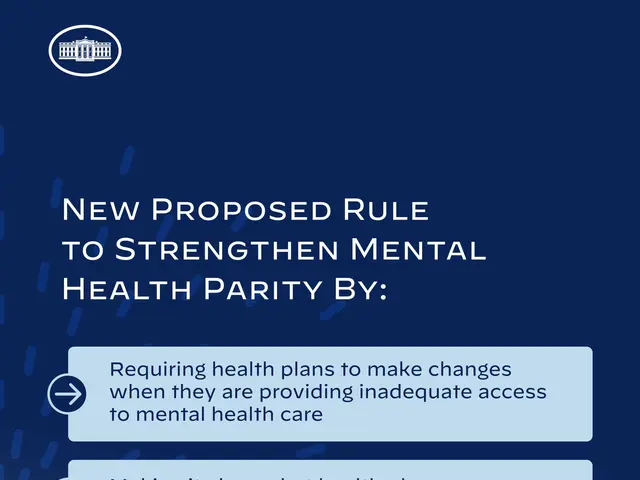Postnatal Temper Outbursts: Identifying Signs, Roots, and Remedies
Postpartum rage, a condition characterized by angry outbursts, short-temperedness, and bouts of aggression or violence, is not uncommon during the postpartum period. This condition, while not an official diagnosis, falls under the umbrella of perinatal mood and anxiety disorders (PMAD).
Postpartum rage is often the result of a combination of factors. Hormonal changes, sleep deprivation, mental overload, unprocessed emotions, and additional emotional stressors can all contribute to this condition.
After childbirth, a rapid drop in estrogen and progesterone significantly affects emotional regulation, leading to increased anger and mood instability. Lack of adequate sleep puts the brain in survival mode, impairing stress processing and intensifying irritability. Constant noise, multiple tasks, and feeling overwhelmed by caregiving responsibilities can further contribute to heightened rage. Unprocessed emotions, such as resentment related to birth experience, breastfeeding struggles, or feelings of loneliness, can fuel rage. Additional emotional stressors exacerbate symptoms and may overlap with postpartum depression or anxiety, though rage is distinguished by intense irritability and explosive anger rather than sadness or fear.
Treatment options for postpartum rage are varied and often combine medical, psychological, and practical measures. Selective serotonin reuptake inhibitors (SSRIs) can help manage severe symptoms linked to hormonal imbalances, stabilizing mood and reducing anger. Psychological support, such as therapy and counseling, helps mothers process feelings, develop coping strategies, and reduce mental overload. Building a strong support network, both emotionally and practically, lessens feelings of isolation and stress, improving symptom management. Improving sleep quality, when possible, can lessen irritability and improve emotional regulation.
Early recognition and seeking professional help are crucial in supporting mental health during the postpartum period. Screening for postpartum rage not only gives those struggling with it an opportunity to get the treatment they need, but can also help prevent it from progressing into postpartum depression. Participating in a support group alongside other treatment options can help normalize what you're going through and dull the shame and guilt that can come with postpartum rage.
Factors that increase the likelihood of postpartum mood disorders lasting longer include difficulty with breastfeeding, parents or children experiencing medical difficulties, a complex or traumatic delivery, a history of depression or other mental conditions, losing a job or death of a loved one, lack of adequate support, experiencing postpartum mood disorders in the past, and having a difficult birth. Postpartum mood disorders, including postpartum bipolar disorder, can come on many months after birth.
Postpartum bipolar disorder, a type of postpartum mood and anxiety disorder listed in the Diagnostic and Statistical Manual of Mental Disorders, Fifth Edition (DSM-5), might cause more intense emotions during a manic episode, and the postpartum rage might be connected to bipolar disorder.
In conclusion, postpartum rage is a complex condition with multiple causes and requires a comprehensive approach to treatment. Early recognition, seeking professional help, and addressing the underlying factors are key to managing postpartum rage and maintaining mental health during the postpartum period.
Science suggests that hormonal changes, lack of sleep, and mental overload contribute to postpartum rage, a condition related to perinatal mood and wellness (mental health). Treatment for postpartum rage may involve a combination of medical interventions, such as SSRIs, psychological support, like therapy and counseling, and practical measures, such as building a strong support network and improving sleep quality.




